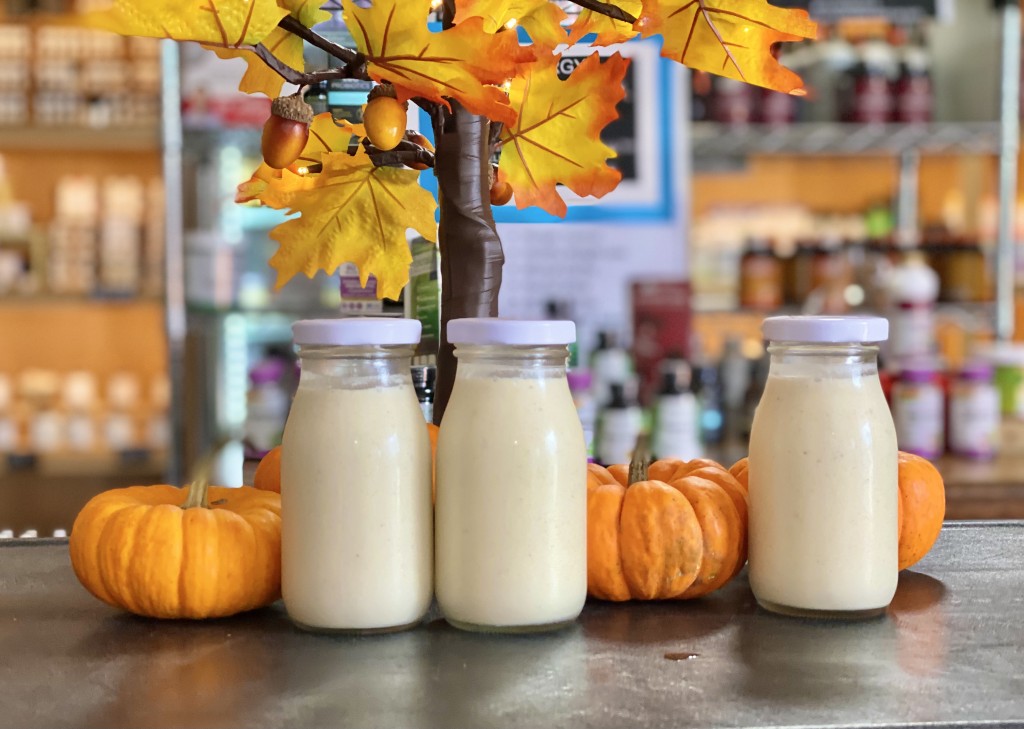
PUMPKIN PIE: Y’all, we milked all the pumpkins for the week and are now fully stocked with our latest Fall treat!
Our Pumpkin Pie Coconut Milk Kefirs are the latest flavor of Fall. Each bottle has a single serving of magical Fall sparkle and is made by Half Hill Farm with locally grown pumpkins we make into a purée, fermented organic coconut milk kefir, organic cinnamon, ginger, clove, nutmeg and agave.
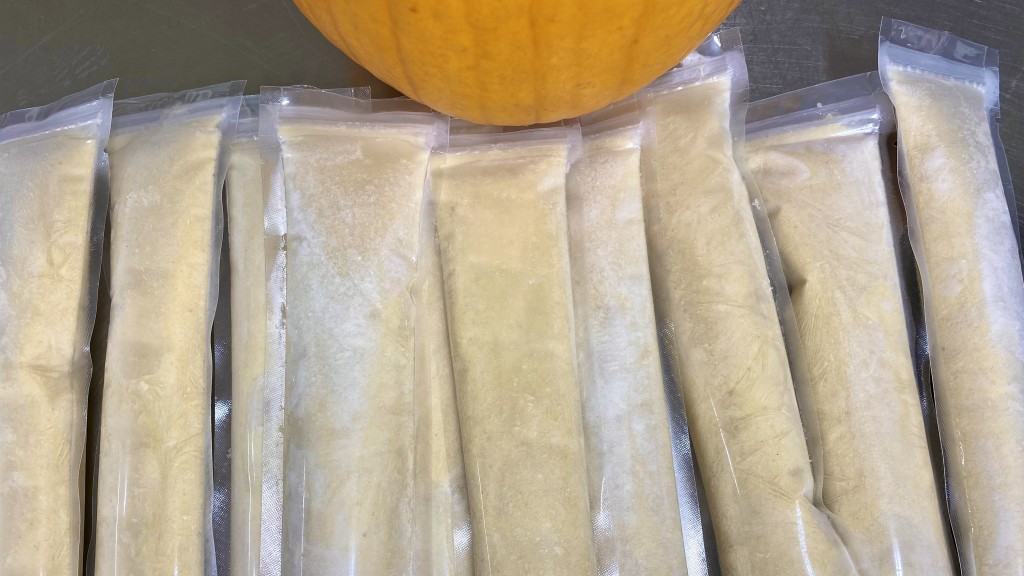
Yes, we made Pumpkin Pie Popsicles! We’ll probably have them as long as we keep seeing y’all wearing shorts. They’re like an ice cold slice of pie, and both the pops and milk kefirs are dairy-free, vegan, probiotic yogurts available now while they last exclusively at the following stores:
- Wellness Emporium of Woodbury Tuesday -Friday 10am – 6pm and Saturday – Monday 10am – 4pm CT: 110 W High Street, Woodbury, TN 37190
- Wellness Emporium of Bell Buckle Friday, Saturday 10am – 4pm, Sunday 12pm – 4pm, Monday 10am – 4pm, closed Tuesday, Wednesday, Thursday 13 Webb Rd. E Bell Buckle, TN 37020
- Wellness Emporium of Murfreesboro Monday – Saturday 10am – 6pm, Sundays 10am – 4pm: 2136 Middle Tennessee BLVD Mufreesboro, TN 37130

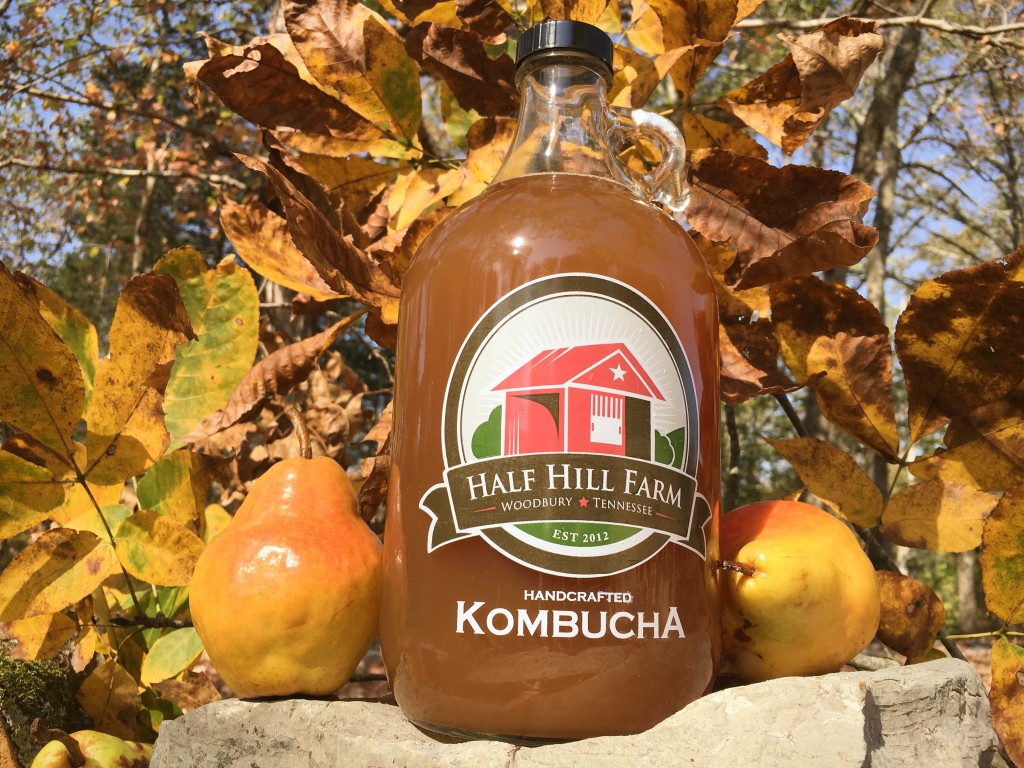
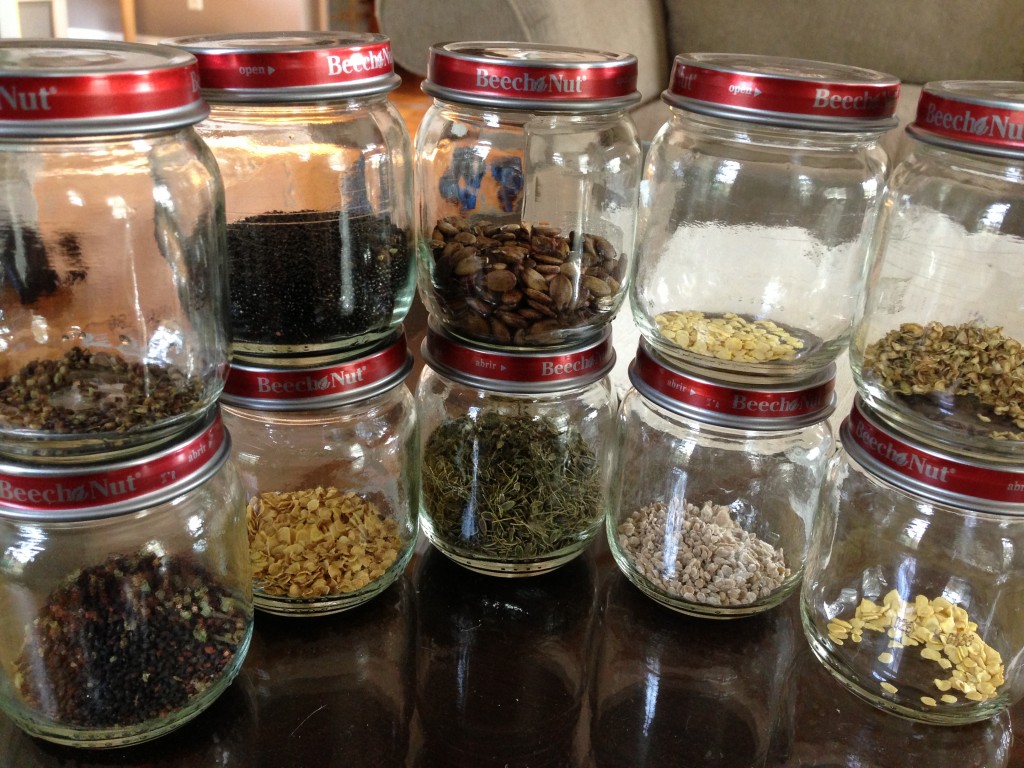
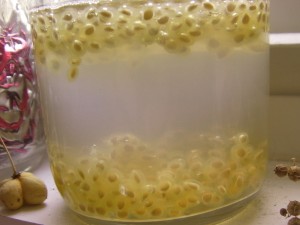
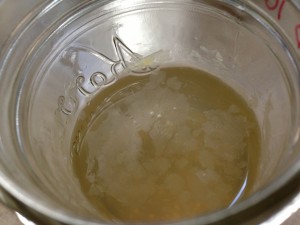
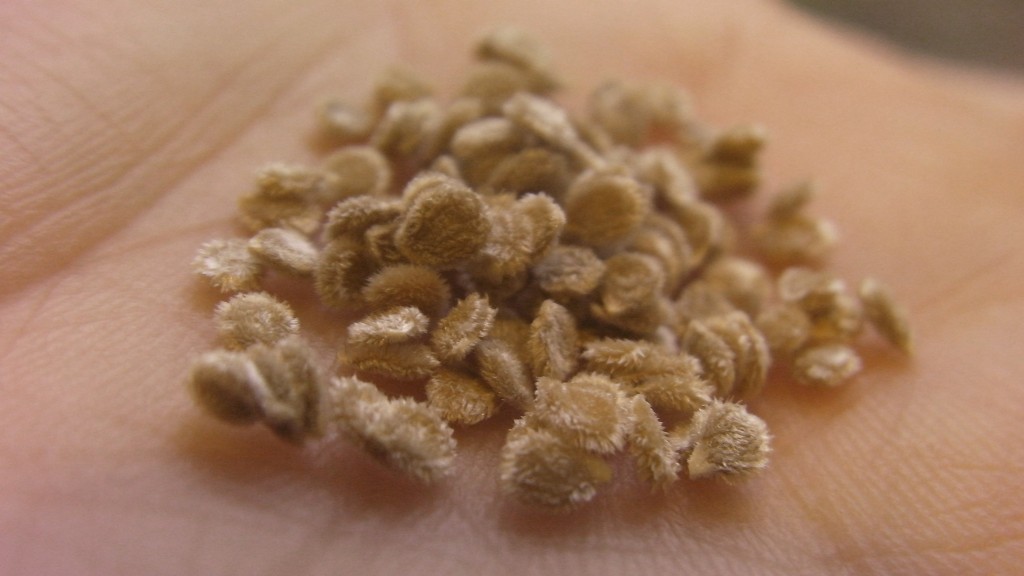
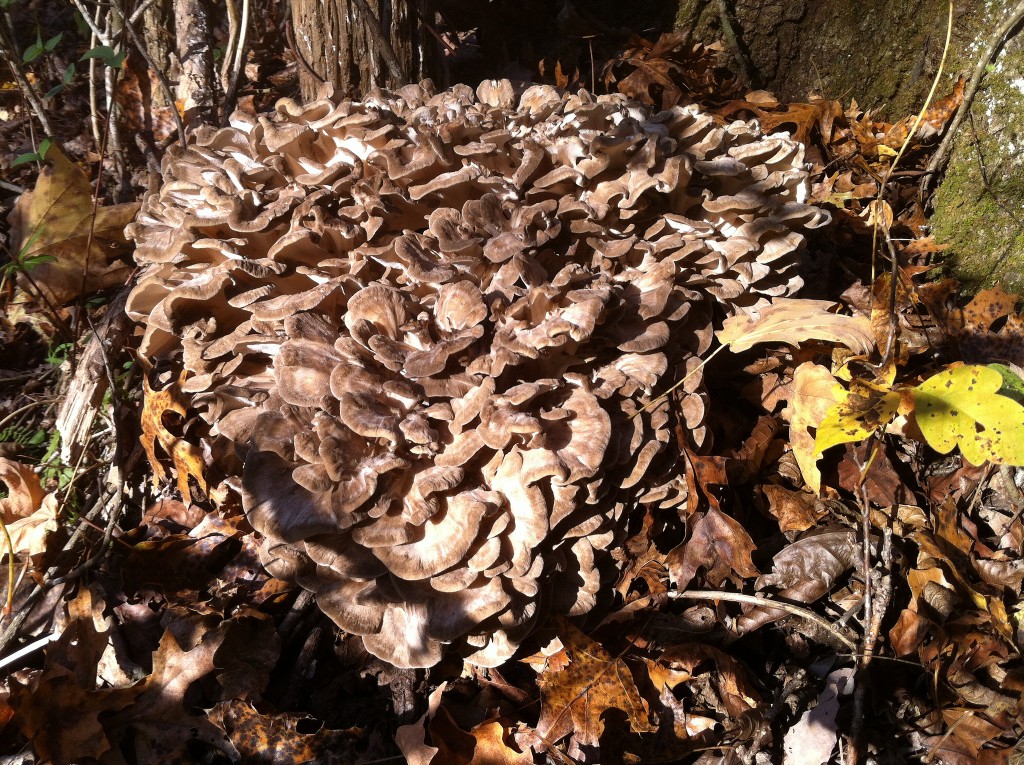
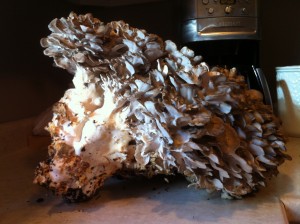 If you find one of these beautiful native mushrooms, and you live within about 75-100 miles of our organic farm in Woodbury, TN, we’d love to come visit and take tissue samples to replicate in our farm’s mushroom lab.
If you find one of these beautiful native mushrooms, and you live within about 75-100 miles of our organic farm in Woodbury, TN, we’d love to come visit and take tissue samples to replicate in our farm’s mushroom lab.